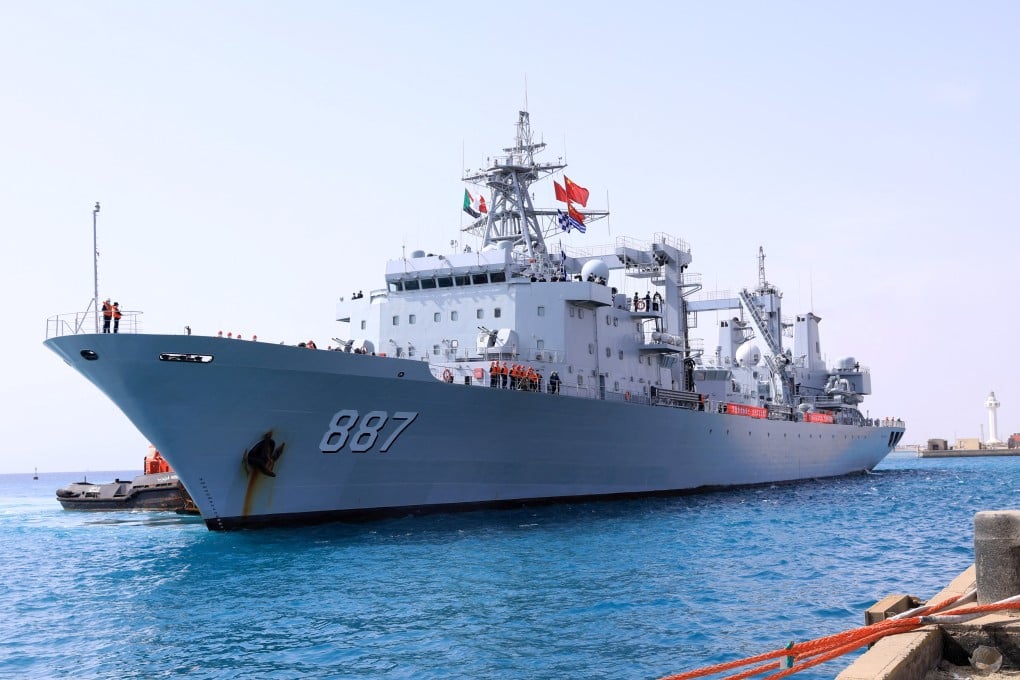Is US belief that UAE may ‘host PLA base’ an overestimation of China’s Middle East influence?
- Top-secret documents show US detected allegedly suspicious construction activity at a container terminal in an Abu Dhabi port that is part-owned by China
- Some analysts say data reflects US tendency to misjudge China’s ties with region, reveals differences of perspective between UAE and US about their security ties

According to top-secret documents seen by The Washington Post, the United States in December detected allegedly suspicious construction activity at a container terminal in the UAE’s Khalifa Port, which has been jointly operated since late 2018 by two state-owned enterprises, Abu Dhabi Ports Group and China’s COSCO Shipping Ports.
The reported work was believed by the US to include “a walled perimeter for a PLA logistics storage site” which may recently have been connected to municipal water and power supplies, the intelligence reports were cited as saying in an article in the newspaper on Thursday.
The UAE – a federation of seven states, including Dubai – froze work at the site in late 2021, after the US complained that the Chinese military was building a facility there, but Emirati officials later said they found no evidence to support Washington’s allegations.
The US intelligence reports claim the resumed construction activity at Port Khalifa is part of PLA plans to build a network of at least five overseas military bases and 10 logistical support facilities by 2030 under an initiative called “Project 141”.
China’s PLA currently operates its sole overseas base at Doraleh port in the east African state of Djibouti, located near the strategic Bab al-Mandeb Strait which links the Indian Ocean to the Red Sea and the Suez Canal.
